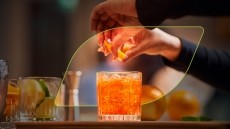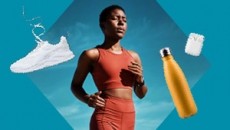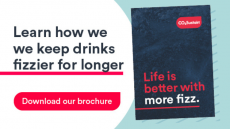Red Bull mixer fails to offer energy high
their stamina on a night out are likely to see no such effect,
suggests new research on the market leader Red Bull.
Energy drinks have been one of the fastest growing segments of the beverage industry, fuelled by high-impact marketing targeting young people.
And while they were not originally designed to be mixed with alcohol, much of the marketing activity surrounding energy drinks promotes their consumption in bars and clubs, where consumers are looking for increased stamina for late nights.
According to UK-based consultancy Zenith International, an estimated 64 per cent of energy drink sales in Europe last year was generated by away from home consumption through bars, clubs and petrol stations. This was confirmed in a survey by a Brazilian team in which three quarters of those surveyed said they drink Red Bull in order to 'reduce' alcohol depressant effects or to 'increase' the alcohol stimulant.
But following up the survey with a trial on 14 men, the same researchers report that energy drinks failed to improve physical performance in a cycling test when consumed with alcohol.
"I think the main message of our study is that this kind of beverage, at least in the tested doses, does not increase people's performance in physical activities or reduce alterations induced by acute alcohol ingestion," said author Maria Lucia O. Souza Formigoni, associate professor at the Federal University of São Paulo in Brazil.
Formigoni's team interviewed 136 people who consumed energy drinks in night clubs. Most of them -76 per cent - used energy drinks with alcoholic beverages, with "some reporting that they do that in order to 'reduce' alcohol depressant effects while others do it to 'increase' the alcohol stimulant effects", she said.
They then asked 14 healthy, male volunteers to complete four sessions, each one week apart, during which they received water, alcohol (1.0 g/kg), an energy drink, and alcohol plus an energy drink prior to performing a cycling test.
The cycling test, which lasted until either a maximum heart rate was reached or the volunteer asked to stop, began 60 minutes after ingestion of that week's solution. Sixty minutes after the cycling test, researchers also measured various physiological indicators such as respiratory exchange rate, heart rate and blood pressure, and biochemical variables and blood alcohol levels.
Results indicate that the energy drink when consumed jointly with alcohol did not improve performance or reduce physiological and biochemical alterations induced by alcohol ingestion.
The study is published in this month's issue of Alcoholism: Clinical & Experimental Research (28(9):1408-1412).
The findings are however unlikely to dent sales of Red Bull which currently holds two thirds of overall volume across West Europe.Although slower than previous years, energy drinks still saw a 6.5 per cent sales increase in 2003 to 311 million litres, translating into a market value of €2340 million in western Europe alone, according to Zenith, and are set to see sustained growth.
But while the combination of energy drink and alcohol may give people the 'sensation' of reduced alcohol effects, their abilities are in fact compromised for complex tasks such as driving a vehicle, noted Formigoni.
Maristela G. Monteiro, regional advisor on alcohol and substance abuse for the Pan American Health Organization, added: "We need more research with a variety of drinks on cognitive performance, reflecting the common usage of the drinks, which would help clarify their potential adverse or beneficial effects."
Research on young women, who are often the target of marketing strategies with such drinks and combination of drinks, should also be a priority as the present study included only male subjects, said Monteiro.
Formigoni and her colleagues are currently examining the effects on mice of different doses of energy drinks and alcohol.














